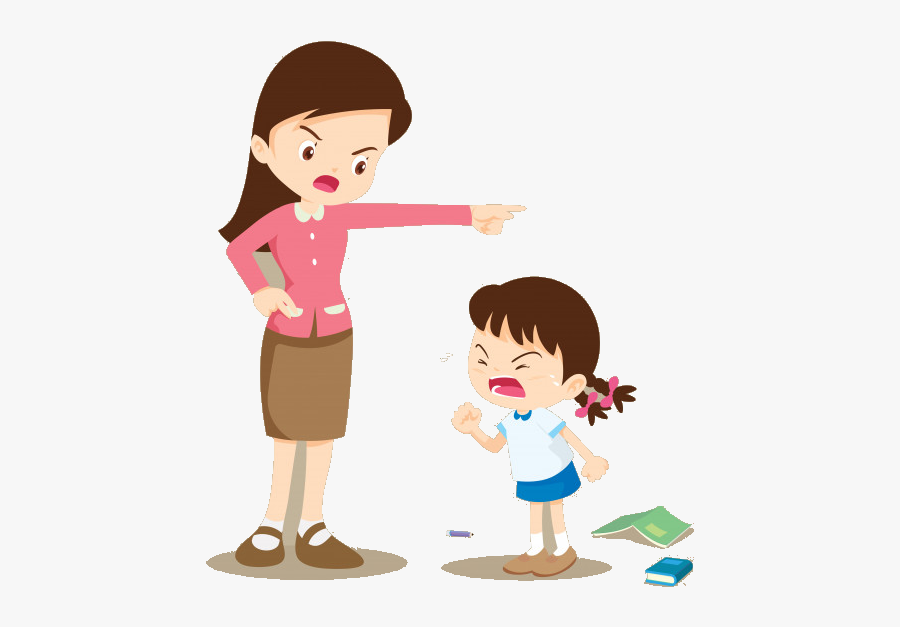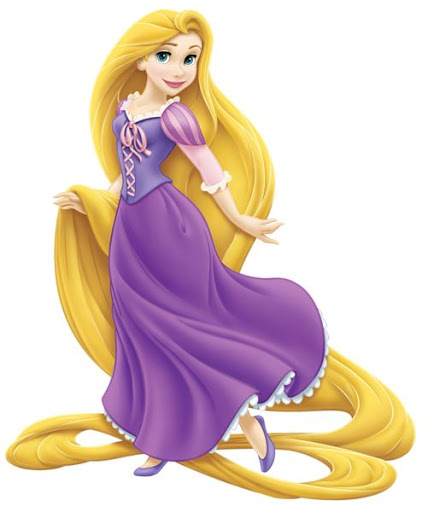AMANDA for Class 10 ENGLISH
THEME

The poem deals with the upbringing of a small child, Amanda. It highlights the struggles faced by the child. Parents are responsible for the proper upbringing of their children but that should not make the children feel trapped. In this poem, Amanda’s mother constantly nags her and tells her what to do and what not to. Her imagination is not given enough space, thus making her so angry that she wishes to be an orphan.
THEME

The poem deals with the upbringing of a small child, Amanda. It highlights the struggles faced by the child. Parents are responsible for the proper upbringing of their children but that should not make the children feel trapped. In this poem, Amanda’s mother constantly nags her and tells her what to do and what not to. Her imagination is not given enough space, thus making her so angry that she wishes to be an orphan.
EXPLANATION
Yeh poem ek choti bachi Amanda ke palan poshan ke barein me batati hai. Aaj kal ke bacho ko bahut problems face karni padti hai. Parents bacho ke palan poshan ke liye zimmedaar hote hai lekin unko dhyan rakhna chahiye ki unka bacha kabhi bhi trapped (fansa hua) feel na kare. Iss poem mein Amanda ki mummy Amanda ko baat-baat par tokti hai aur batati hai usko kya karna chahiye aur kya nahi. Usko sapne dekhne bhi nahi diya jaa raha jiski wajah se Amanda ek orphan (anaath) hone ki icha rakhti hain.
EXPLANATION
यह कविता एक छोटी बच्ची,अमांडा की परवरिश से संबंधित है। यह बच्ची द्वारा सामना किए गए संघर्षों पर प्रकाश डालती है। माता-पिता अपने बच्चों को उचित परवरिश देने के लिए जिम्मेदार हैं लेकिन इससे बच्चों को फस्सा हुआ महसूस नहीं होना चाहिए। इस कविता में अमांडा की माँ लगातार उसे हर बात पर टोका करती हैं और उसे बताती है कि क्या करना है और क्या नहीं। उसकी कलपना को पर्याप्त स्थान नहीं दिया गया, इस प्रकार उसे इतना क्रोधित कर दिया कि वह एक अनाथ होने की इच्छा रखती है।
ABOUT THE POET

Robin McMaugh Klein is an Australian author of books for children. She was born on 28 February 1936, in Kempsey, New South Wales, Australia and now resides near Melbourne.
ABOUT THE POET

Robin McMaugh Klein is an Australian author of books for children. She was born on 28 February 1936, in Kempsey, New South Wales, Australia and now resides near Melbourne.
EXPLANATION
Robin McMaugh Klein ek Australian lekhika hain aur bacho ki kitabein likhti hain. Unka janam 28 February 1936, mei Kempsey, New South Wales, Australia me hua tha aur ab vo Melbourne mein rehti hain.
EXPLANATION
रॉबिन मैकमोफ क्लेन एक ऑस्ट्रेलियन लेखिका हैं जो बच्चो की किताबें लिखती हैं। उनका जन्म 28 फरवरी 1936 को केम्पसी, न्यू साउथ वेल्स, ऑस्ट्रेलिया में हुआ था और अब वे मेलबर्न के पास रहती हैं।
STANZA 1

“Don’t bite your nails, Amanda!
Don’t hunch your shoulders,
Amanda!
Stop that slouching and sit up straight,
Amanda!
(There is a languid, emerald sea,
where the sole inhabitant is me—
a mermaid, drifting blissfully.)
STANZA 1

“Don’t bite your nails, Amanda!
Don’t hunch your shoulders,
Amanda!
Stop that slouching and sit up straight,
Amanda!
(There is a languid, emerald sea,
where the sole inhabitant is me—
a mermaid, drifting blissfully.)
IMPORTANT WORDS
Hunch: Bend; कूबड़
Slouching: Sitting in a lazy way; झुकना
Languid: Relaxed; सुस्त
Emerald: Here, green color; पन्ना रंग
Inhabitant: Resident; निवासी
Drifting: Carried slowly by the water; स्रोत से बहाकर ले जाया जाना
Blissfully: Happily; आनंदपूर्वक
IMPORTANT WORDS
Hunch: Bend; कूबड़
Slouching: Sitting in a lazy way; झुकना
Languid: Relaxed; सुस्त
Emerald: Here, green color; पन्ना रंग
Inhabitant: Resident; निवासी
Drifting: Carried slowly by the water; स्रोत से बहाकर ले जाया जाना
Blissfully: Happily; आनंदपूर्वक
EXPLANATION
Poetess kehti hai ki Amanda ek choti bachi hai jiski mummy usko har baat par tokti rehti hai. Vo Amanda ko nails bite krne se mana karti hai. Mother, Amanda ko sidhe aur sahi tareeke se, bina shoulders ko jhukaye, baithne ke liye bhi kehti hai. Jab Amanda ki mummy Amanda ko daant rahi hoti hai uss waqt Amanda apne sapno me kho jati hai aur sochti hai ki kash voh ek jalpari hoti aur gehre hare rang ke samundar me rehti. Amanda sochti hai ki kaash vo ek jalpari ki tarah akeli rehti aur sukoon bhari zindagi jeeti. Amanda chahati hai ki kash vo paani ke bahaav ke sath sath ghumti rehti.
EXPLANATION
कवयित्री कहती हैं कि अमांडा एक छोटी बच्ची है जिसकी मम्मी उसको हर बात पर टोकती रहती हैं। वो अमांडा को नाख़ून खाने से माना करती हैं। अमांडा की माँ उसको सीधे और सही तरीके से, बिना कंधों को झुकाये, बैठने के लिए भी कहती हैं। जब अमांडा की माँ उसको डांट रही होती हैं उस समय अमांडा अपने सपनों में खो जाती है और सोचती है कि काश वह एक जलपरी होती और गहरे हरे रंग के सम्नदर में रहती। अमांडा सोचती है कि काश वो एक जलपरी जैसी सुकून भरी ज़िन्दगी जीती। अमांडा चाहती हैं कि वह पानी के बहाव के साथ घूमती रहे।
STANZA 2

“Did you finish your homework, Amanda?
Did you tidy your room, Amanda?
I thought I told you to clean your shoes,
Amanda!
(I am an orphan, roaming the street.
I pattern soft dust with my hushed, bare feet.
The silence is golden, the freedom is sweet.)
STANZA 2

“Did you finish your homework, Amanda?
Did you tidy your room, Amanda?
I thought I told you to clean your shoes,
Amanda!
(I am an orphan, roaming the street.
I pattern soft dust with my hushed, bare feet.
The silence is golden, the freedom is sweet.)
IMPORTANT WORDS
Orphan: A child whose parents are dead; अनाथ
Hushed: Quiet and still place; चुप रहना
IMPORTANT WORDS
Orphan: A child whose parents are dead; अनाथ
Hushed: Quiet and still place; चुप रहना
EXPLANATION
Amanda ki mummy usse puchti hai ki kya usne apna homework kiya aur apna room saaf kiya hai. Mummy, Amanda ko uske shoes saaf krne ke liye bhi yaad dilati hai. Amanda iss sab se pareshan ho kr firse sapno mein kho jati hai aur sochti hai ki vo ek orphan (anaath) hai aur sadak par ghoom rahi hai. Amanda sochti hai ki vo apne parents ke bina sadak par free hokar ghoom sakti hai. Vo apne pairo se mitti mein patterns banana chahti hai. Amanda itni rok tok se pareshan ho gayi hai.
EXPLANATION
अमांडा की माँ उससे पूछती हैं कि क्या उसने अपना होमवर्क और अपना रूम साफ़ किया हैं। मम्मी, अमांडा को उसके जूते साफ़ करने के लिए भी याद दिलाती हैं। अमांडा इस सब से परेशान होकर फिर से सपनो में खो जाती हैं और सोचती हैं कि वह एक अनाथ है और सड़क पर घूम रही है। अमांडा अपने पैरों से मिट्टी में आकार बनाना चाहती हैं। अमांडा इतनी रोक टोक से परेशान हो गई है।
STANZA 3

“Don’t eat that chocolate, Amanda!
Remember your acne, Amanda!
Will you please look at me when I’m speaking to you,
Amanda!
(I am Rapunzel; I have not a care;
life in a tower is tranquil and rare;
I’ll certainly never let down my bright hair!)
STANZA 3

“Don’t eat that chocolate, Amanda!
Remember your acne, Amanda!
Will you please look at me when I’m speaking to you,
Amanda!
(I am Rapunzel; I have not a care;
life in a tower is tranquil and rare;
I’ll certainly never let down my bright hair!)
IMPORTANT WORDS
Acne: Pimples; मुँहासे
Rapunzel: A girl in the fairy tale; परी
Tranquil: Calm, quiet; शांत
Rare: Uncommon; दुर्लभ
IMPORTANT WORDS
Acne: Pimples; मुँहासे
Rapunzel: A girl in the fairy tale; परी
Tranquil: Calm, quiet; शांत
Rare: Uncommon; दुर्लभ
EXPLANATION
Amanda ki mummy ab usko chocolates khane ke liye mana karti hai. Vo Amanda ko kehti hai ki uske chehre par pimples zyada chocolates khane ki wajah se huye hai. Mummy Amanda ko firse daant deti hai kyuki Amanda unki bato par dhyan nahi de rahi hoti hai. Ab Amanda Rapunzel (Vo ladki jiske bahut bade baal hai) ban ne ke sapne dekhti hai. Vo sochti hain ki Rapunzel ki tarah tower mein rehna kitna shant aur mazedar hoga. Amanda khud ko kehti hai ki vo kabhi bhi apne bade baalo ko niche nahi latkayegi.
EXPLANATION
अमांडा की माँ अब उसको चॉकलेट्स खाने के लिए माना करती हैं। वो अमांडा को कहती हैं कि उसके चहरे पर दाने ज़्यादा चॉकलेट्स खाने के कारण हुए हैं। वह अमांडा को फिर से डांट देती हैं क्योंकि अमांडा उनकी बातों पर ध्यान नहीं दे रही होती है। अब अमांडा रॅपन्ज़ेल (वो लड़की जिसके बहुत बड़े बाल हैं) बन जाने के सपने देखती है। वो सोचती है रॅपन्ज़ेल जैसे टावर में रहना कितना शांत और मज़ेदार होगा। अमांडा खुद को कहती हैं कि वह कभी भी अपने बड़े बालों को निचे नहीं लटकायेगी।
STANZA 4

Stop that sulking at once, Amanda!
You’re always so moody, Amanda!
Anyone would think that I nagged at you,
Amanda!
STANZA 4

Stop that sulking at once, Amanda!
You’re always so moody, Amanda!
Anyone would think that I nagged at you,
Amanda!
IMPORTANT WORDS
Sulking: Be in a bad mood; नाराज
Moody: Unstable; उदासीन
Nagged: Harass; परेशान करना
IMPORTANT WORDS
Sulking: Be in a bad mood; नाराज
Moody: Unstable; उदासीन
Nagged: Harass; परेशान करना
EXPLANATION
Ab Amanda ki mummy usko firse daant te hue kehti hai ki iss tarah se behave karna band karo aur udaas mat raho. Har koi sochega jaise maine tumko pareshan kar rakha hai. Amanda ki mummy bas ye chahti hai ki Amanda bilkul sahi tareeke se pesh aaye lekin Amanda ko unka bar bar rok tok karna pasand nahi aata hai.
EXPLANATION
अब उसकी माँ उसको फिर से डांटते हुए कहती हैं कि इस तरह से व्यवहार करना बंद करो और उदास मत रहो। हर कोई सोचेगा जैसे मैंने तुमको परेशान कर रखा है। इसकी माँ बस यह चाहती थी कि अमांडा बिलकुल सही तरीके से पेश आए लेकिन अमांडा को उनका बार-बार रोक-टोक करना पसंद नहीं है।
SUMMARY
SUMMARY
EXPLANATION
EXPLANATION
LITERARY DEVICES
Anaphora: Repeated use of a word at start of two or more lines
(don’t bite… don’t hunch)
(did you finish….did you tidy)
Assonance: use of vowel sound ‘o’
(don’t hunch your shoulders)
(thought, told, you, your, shoes)
(Will you please look at me when I’m speaking to you)
Repetition:Use of word ‘Amanda’
Imagery: drifting blissfully
Alliteration: Repetition of sounds at the start of closely placed words.
‘Stop that slouching and sit up straight’ - ‘s’:
‘Stop that sulking’ - ‘s’
Allusion:
‘mermaid’ is a well-known imaginary creature.
use of famous fairy tale character Rapunzel
Metaphor: silence is golden - silence is said to be glorious like golden colour
freedom is sweet - freedom is said to be sweet in taste.
LITERARY DEVICES
Anaphora: Repeated use of a word at start of two or more lines
(don’t bite… don’t hunch)
(did you finish….did you tidy)
Assonance: use of vowel sound ‘o’
(don’t hunch your shoulders)
(thought, told, you, your, shoes)
(Will you please look at me when I’m speaking to you)
Repetition:Use of word ‘Amanda’
Imagery: drifting blissfully
Alliteration: Repetition of sounds at the start of closely placed words.
‘Stop that slouching and sit up straight’ - ‘s’:
‘Stop that sulking’ - ‘s’
Allusion:
‘mermaid’ is a well-known imaginary creature.
use of famous fairy tale character Rapunzel
Metaphor: silence is golden - silence is said to be glorious like golden colour
freedom is sweet - freedom is said to be sweet in taste.
QUESTION ANSWERS
1. How old do you think Amanda is? How do you know this?
ANSWER:Amanda must be about 10-12 years old. She is a school-going girl. The way Amanda is being instructed by her mother for doing homework and sitting straight, such instructions are usually given to a school-going girl.
2. Who do you think is speaking to her?
ANSWER: Amanda’s mother is instructing her to behave properly, sit properly, and look at her when she is speaking. It seems to be a conventional household wherein the parents are responsible for the child's upbringing. Since the mother has more burden of nurturing the child, she seems to be bothered about Amanda much more and notices everything about Amanda. This noticing almost seems nagging.
3. Why are Stanzas 2, 4, and 6 given in parenthesis?
ANSWER: Stanzas 2, 4, and 6 are given in parenthesis because they are the thoughts of the child in between the instructions that she is being given by her mother.
4. Who is the speaker in stanzas 2, 4, and 6? Do you think this speaker is listening to the speaker in stanzas 1, 3, 5, and 7?
ANSWER: In stanzas 2, 4, and 6, the speaker is the child, Amanda. No, she is not listening to her mother who is the speaker in stanzas 1, 3 and 5.Amanda is busy daydreaming and she is hardly paying any attention to her mother.
5. What could Amanda do if she were a mermaid?
ANSWER: If Amanda were a mermaid, then she would drift slowly on a languid emerald sea. She would live alone and lead her life in a very relaxing way. She says that she wants to be carried away by the current of water and feel the relaxing environment there.
6. Is Amanda an orphan? Why does she say so?
ANSWER: No, Amanda is not an orphan. Her mother is continuously scolding and correcting her. She thinks if she becomes an orphan she will have more freedom than herself. She imagines herself as an orphan, roaming about on the streets, walking around, and making patterns in the soft dust with her bare feet.
7. Do you know the story of Rapunzel? Why does she want to be Rapunzel?
ANSWER: She wants to be Rapunzel because she wants to live alone. Rapunzel lived alone in a tall tower and had long, beautiful hair. She was held captive by her grandmother, who came up to the tower by climbing her long hair. Amanda also wants to live alone in a tower as life would be tranquil, peaceful, and rare. However, she also decided that she would never throw down her hair for anyone to come up as she wanted to live alone always.
8. What does the girl yearn for? What does this poem tell you about Amanda?
ANSWER: The girl yearns for a life of freedom. This poem tells that Amanda wants to be free from nagging. She is constantly instructed by her mother not to bite her nails and hunch her shoulders. She is reminded to sit straight and complete her homework. She wants to go away from her home to someplace where she would not be constantly nagged and would be able to live peacefully. She is an imaginative person who is looking for independence from being continuously scolded.
9. Read the last stanza. Do you think Amanda is sulking and is moody?
ANSWER: Yes, Amanda is sulking and she is a little moody. She is daydreaming about being a mermaid, Rapunzel, and an orphan. She is not even listening to her mother. She is so sad that she even wishes to be an orphan.
QUESTION ANSWERS
1. How old do you think Amanda is? How do you know this?
ANSWER:Amanda must be about 10-12 years old. She is a school-going girl. The way Amanda is being instructed by her mother for doing homework and sitting straight, such instructions are usually given to a school-going girl.
2. Who do you think is speaking to her?
ANSWER: Amanda’s mother is instructing her to behave properly, sit properly, and look at her when she is speaking. It seems to be a conventional household wherein the parents are responsible for the child's upbringing. Since the mother has more burden of nurturing the child, she seems to be bothered about Amanda much more and notices everything about Amanda. This noticing almost seems nagging.
3. Why are Stanzas 2, 4, and 6 given in parenthesis?
ANSWER: Stanzas 2, 4, and 6 are given in parenthesis because they are the thoughts of the child in between the instructions that she is being given by her mother.
4. Who is the speaker in stanzas 2, 4, and 6? Do you think this speaker is listening to the speaker in stanzas 1, 3, 5, and 7?
ANSWER: In stanzas 2, 4, and 6, the speaker is the child, Amanda. No, she is not listening to her mother who is the speaker in stanzas 1, 3 and 5.Amanda is busy daydreaming and she is hardly paying any attention to her mother.
5. What could Amanda do if she were a mermaid?
ANSWER: If Amanda were a mermaid, then she would drift slowly on a languid emerald sea. She would live alone and lead her life in a very relaxing way. She says that she wants to be carried away by the current of water and feel the relaxing environment there.
6. Is Amanda an orphan? Why does she say so?
ANSWER: No, Amanda is not an orphan. Her mother is continuously scolding and correcting her. She thinks if she becomes an orphan she will have more freedom than herself. She imagines herself as an orphan, roaming about on the streets, walking around, and making patterns in the soft dust with her bare feet.
7. Do you know the story of Rapunzel? Why does she want to be Rapunzel?
ANSWER: She wants to be Rapunzel because she wants to live alone. Rapunzel lived alone in a tall tower and had long, beautiful hair. She was held captive by her grandmother, who came up to the tower by climbing her long hair. Amanda also wants to live alone in a tower as life would be tranquil, peaceful, and rare. However, she also decided that she would never throw down her hair for anyone to come up as she wanted to live alone always.
8. What does the girl yearn for? What does this poem tell you about Amanda?
ANSWER: The girl yearns for a life of freedom. This poem tells that Amanda wants to be free from nagging. She is constantly instructed by her mother not to bite her nails and hunch her shoulders. She is reminded to sit straight and complete her homework. She wants to go away from her home to someplace where she would not be constantly nagged and would be able to live peacefully. She is an imaginative person who is looking for independence from being continuously scolded.
9. Read the last stanza. Do you think Amanda is sulking and is moody?
ANSWER: Yes, Amanda is sulking and she is a little moody. She is daydreaming about being a mermaid, Rapunzel, and an orphan. She is not even listening to her mother. She is so sad that she even wishes to be an orphan.
EXTRA QUESTIONS
1. How will Amanda's life on a tower vary from her life elsewhere?
ANSWER: Amanda's life on the tower will be very different from her everyday life. She, like Rapunzel, wishes to live on top of a tower, far from the chaos of daily life. Amanda is afflicted by her parents' relentless nagging. She is looking for a place where she can find calmness with no one to bother her. As a result, she desires to live in a tower.
2. How will it help Amanda to be an orphan?
ANSWER: Amanda is distressed by her parents, so she fantasizes about becoming an orphan. She believes only then will she be able to live a free and independent life.
3. Is Amanda to blame in some way?
ANSWER: Amanda is completely blameless. The idea of acne and not consuming chocolate is just too harsh for a young child to comprehend. Amanda's life is devoid of parental love. We look at Amanda with a sense of pity. Nothing could be worse for a child who aspires to be an orphan. Amanda simply wants to be free of the oppressive world that surrounds her.
4. What is the core theme of the poem Amanda?
ANSWER: The poem emphasizes the importance of a child's upbringing. It emphasizes that upbringing should not solely consist of teaching a child to be responsible and fit for society. It's important to remember that upbringing necessitates cooperation from both parties. It is impossible to compel a child to be civilized and well-behaved. Nurturing a child necessitates love and good treatment.
EXTRA QUESTIONS
1. How will Amanda's life on a tower vary from her life elsewhere?
ANSWER: Amanda's life on the tower will be very different from her everyday life. She, like Rapunzel, wishes to live on top of a tower, far from the chaos of daily life. Amanda is afflicted by her parents' relentless nagging. She is looking for a place where she can find calmness with no one to bother her. As a result, she desires to live in a tower.
2. How will it help Amanda to be an orphan?
ANSWER: Amanda is distressed by her parents, so she fantasizes about becoming an orphan. She believes only then will she be able to live a free and independent life.
3. Is Amanda to blame in some way?
ANSWER: Amanda is completely blameless. The idea of acne and not consuming chocolate is just too harsh for a young child to comprehend. Amanda's life is devoid of parental love. We look at Amanda with a sense of pity. Nothing could be worse for a child who aspires to be an orphan. Amanda simply wants to be free of the oppressive world that surrounds her.
4. What is the core theme of the poem Amanda?
ANSWER: The poem emphasizes the importance of a child's upbringing. It emphasizes that upbringing should not solely consist of teaching a child to be responsible and fit for society. It's important to remember that upbringing necessitates cooperation from both parties. It is impossible to compel a child to be civilized and well-behaved. Nurturing a child necessitates love and good treatment.
PREVIOUS YEAR QUESTIONS
1. Why does Amanda seem moody most of the time?
ANSWER: Amanda seems moody much of the time because she is trying to get away from her miserable reality, where she is constantly nagged. It's a terrible situation for a little child like Amanda to be in. Her imagination, in which she often tries to escape this situation, is her only protection against such facts. As a result, she seems moody and uninterested.
2. Who do you think is speaking to her?
ANSWER: Amanda’s mother is instructing her to behave properly, sit properly, and look at her when she is speaking. It seems to be a conventional household wherein the parents are responsible for the child's upbringing. Since the mother has more burden of nurturing the child, she seems to be bothered about Amanda much more and notices everything about Amanda. This noticing almost seems nagging.
3. Write a short note on the title of the poem?
ANSWER: 'Amanda' is the title of the poem, which is about the life of a young girl named Amanda, who is the protagonist. Her life has been full of battles in which she has been denied freedom and having her voice. Amanda is so enraged that she avoids reality by immersing herself in her fantasy world. She finds peace away from her nagging parents through this portal.
PREVIOUS YEAR QUESTIONS
1. Why does Amanda seem moody most of the time?
ANSWER: Amanda seems moody much of the time because she is trying to get away from her miserable reality, where she is constantly nagged. It's a terrible situation for a little child like Amanda to be in. Her imagination, in which she often tries to escape this situation, is her only protection against such facts. As a result, she seems moody and uninterested.
2. Who do you think is speaking to her?
ANSWER: Amanda’s mother is instructing her to behave properly, sit properly, and look at her when she is speaking. It seems to be a conventional household wherein the parents are responsible for the child's upbringing. Since the mother has more burden of nurturing the child, she seems to be bothered about Amanda much more and notices everything about Amanda. This noticing almost seems nagging.
3. Write a short note on the title of the poem?
ANSWER: 'Amanda' is the title of the poem, which is about the life of a young girl named Amanda, who is the protagonist. Her life has been full of battles in which she has been denied freedom and having her voice. Amanda is so enraged that she avoids reality by immersing herself in her fantasy world. She finds peace away from her nagging parents through this portal.
GLOSSARY
Hunch: Bend; कूबड़
Slouching: Sitting lazily; झुकना
Languid: Relaxed; सुस्त
Emerald: Here, green color; पन्ना रंग
Inhabitant: Resident; निवासी
Drifting: Carried slowly by the water; स्रोत से बहाकर ले जाया जाना
Blissfully: Happily; आनंदपूर्वक
Orphan: A child whose parents are dead; अनाथ
Hushed: Quiet and still place; चुप रहना
Acne: Pimples; मुँहासे
Tranquil: Calm, quiet; शांत
Rare: Uncommon; दुर्लभ
Sulking: Be in a bad mood; नाराज
Moody: Unstable; उदासीन
Nagged: Harass; परेशान करना
GLOSSARY
Hunch: Bend; कूबड़
Slouching: Sitting lazily; झुकना
Languid: Relaxed; सुस्त
Emerald: Here, green color; पन्ना रंग
Inhabitant: Resident; निवासी
Drifting: Carried slowly by the water; स्रोत से बहाकर ले जाया जाना
Blissfully: Happily; आनंदपूर्वक
Orphan: A child whose parents are dead; अनाथ
Hushed: Quiet and still place; चुप रहना
Acne: Pimples; मुँहासे
Tranquil: Calm, quiet; शांत
Rare: Uncommon; दुर्लभ
Sulking: Be in a bad mood; नाराज
Moody: Unstable; उदासीन
Nagged: Harass; परेशान करना